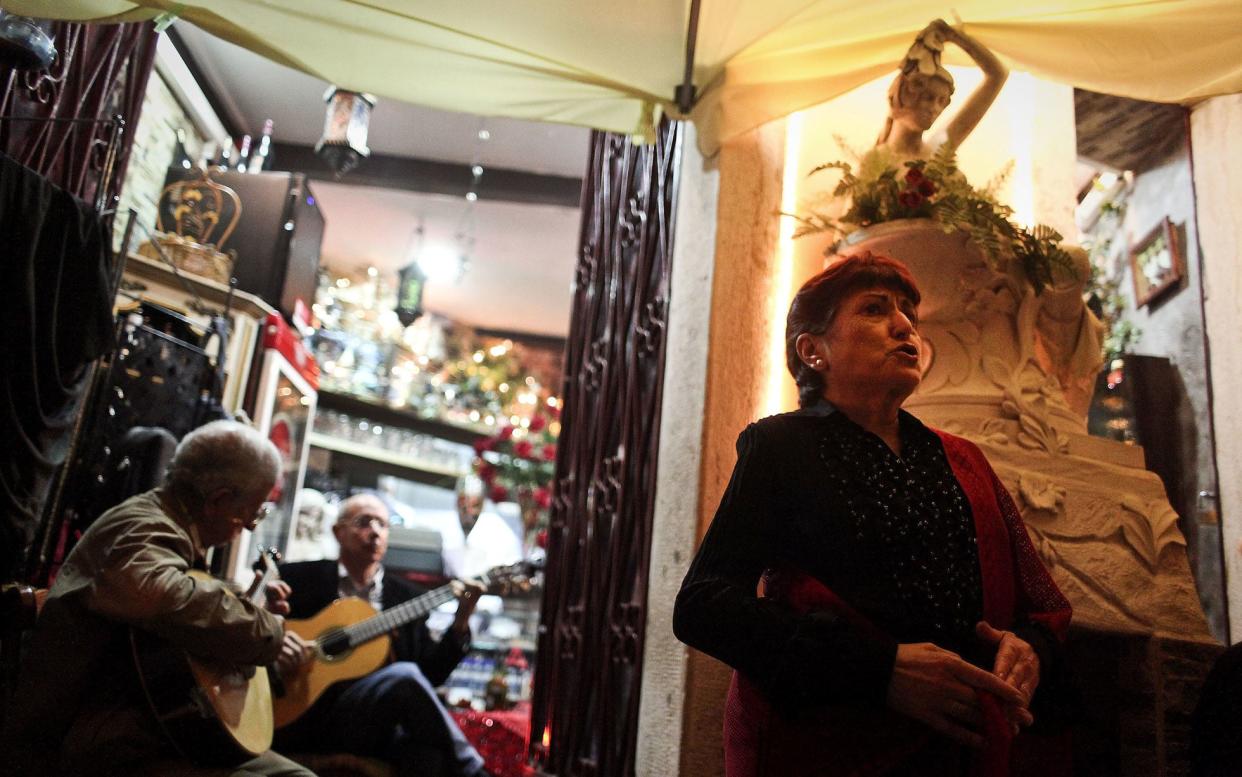Just Back: Fado and flaming sausages in the backstreets of Lisbon

Katherine Conlon wins £200 for her tale of a moving and nostalgic fado performance in the backstreets of Lisbon
A thump makes us both jump, scattering our card game across the floor. The elderly couple below us are equipped with a stick, which they thud on the ceiling when we’re in. They lament a quieter time, their traditional neighbourhood changing with the influx of holidaymakers renting apartments by the night.
Alfama was once Lisbon’s poorest area, the place sailors called home between long voyages. Fado music was born here, nostalgic songs about the sorrow of life at sea, or longing for a lover.

Later, legs tired from walking the maze of slippery cobblestone streets, we pass the touristy fado houses with complicated entry rules, feeling ready to give up on the evening.
One last set of stairs, we agree. At the top we follow the sound of guitars down a narrow alley. It leads to a small courtyard filled with people and steps running down to a makeshift stage.
We perch on a craggy rock next to another couple, heads shaded from the dying sun by the medieval Moorish wall behind us. The male singer is being upstaged by a glamorous older lady behind him, who is putting her face between the frame of an upturned chair, provoking laughter from the young audience.
She is known to everyone. During her turn she gestures wildly, grasps friends’ hands in the crowd, and continues to interject the other performances from her chair on the steps for the rest of the night.

One singer places his fingers either side of his head like horns, sashaying past the women sitting around him and then caressing his imaginary breasts. We get the gist of this song despite seeming to be the only ones oblivious to the lyrics. A waiter haphazardly carries a plate through the crowd, using a borrowed lighter to set it on fire like a Christmas pudding. No one watches except us. “Flaming sausage,” the girl on the rock beside informs me, earnestly.
At the end a waitress steps up and sings, her eyes closed throughout, the emotion of the song etched on her young face. The atmosphere changes; everyone is silent. Alfama may be a neighbourhood in flux, but this was a moment grounded in culture, heritage and belonging.
“Muito obrigada,” I thank the waitress as we leave, carefully enunciating my few Portuguese words. “Fado, no translation,” she replies. “It is something we feel in our soul.”
As we wander back through the yellow-lit streets we pause at wall plaques showing the smiling faces of performers we have just seen. Then we creep up the stairs to our flat, and huddle on the balcony to watch a cruise ship leave from the river.

How to enter
Email your entry, in 500 words (with the text in the body of the email), to justback@telegraph.co.uk. For terms and conditions, see telegraph.co.uk/tt-justback.
The winner will receive £200 in the currency of their choice from the Post Office.
The Post Office is the UK’s largest travel money provider. It offers more than 70 currencies with 0% commission. Customers can buy selected currencies over the counter at 8,000 branches and all currencies can be ordered for next-day delivery at 11,500 branches. Orders can be placed online at postoffice.co.uk/travel-money.


